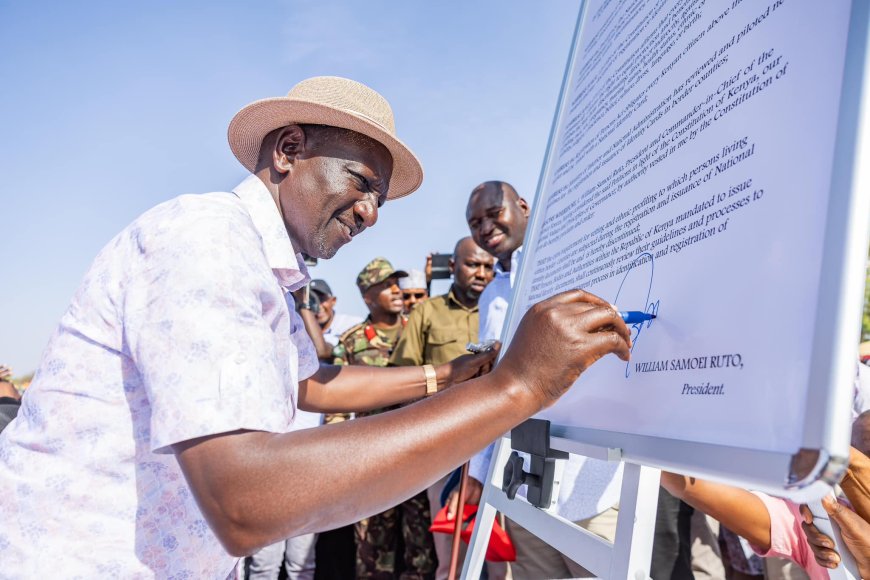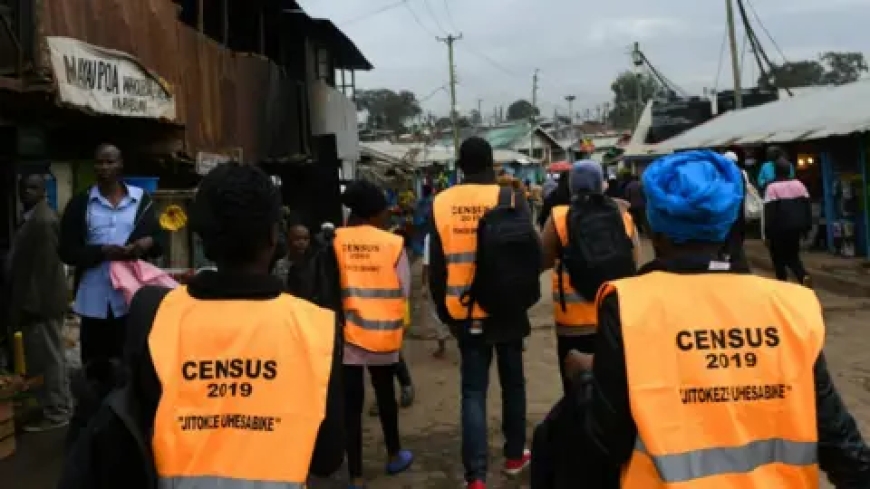The move is likely to be the first time lawmakers challenge President Ruto’s policy decisions after the Head of State has been vocal in defending them.
President William Ruto’s decision to end a 60-year-old vetting requirement and allow residents of border counties to acquire national Identity (ID) cards has continued to elicit mixed reactions, with the Orange Democratic Movement (ODM), his newfound ally party, now wading into the matter.
On Wednesday, February 5, President Ruto signed a proclamation that waived the requirements for certain citizens from the border counties of the Northeastern region to be vetted before obtaining identification documents, a decision however seen as a major political strategy by President Ruto to create a new voting bloc ahead of the 2027 General Election.
ODM, through its interim party leader Peter Anyang’ Nyong’o, on Sunday, February 9, however, directed its matters to table the matter in Parliament when sessions resume on Tuesday, February 11.
The move is likely to be the first time lawmakers challenge President Ruto’s policy decisions after the Head of State has been vocal in defending them.

President William Ruto signing the Presidential Proclamation on Registration and Issuance of IDs to Border Counties in Wajir County on Wednesday, February 5, 2025. /PCS
The Kisumu Governor, who was speaking at an ODM Western Region convention, warned that the proposed new laws on borders and boundaries could jeopardize the freedom of citizens living in border towns.
Nyong’o suggested that the President should have sought the views of all the county governments before making the decision, rather than just proclaiming it out of the blue.
“I wanted to talk about border issues. We have 48 governments in this country, according to the Constitution; one national and 47 counties. Nobody, even the President, can imagine that you can create laws that govern movement across the border which makes it very difficult for people who live in a county to have their freedom and their protection,” Nyong’o stated.
“I would like MPs to go to Parliament and make it very clear that any move by anybody, I do not want to mention names, to begin confusing citizenship on our borders when we know these are our counties and make a problem for any county which is a border county, is completely unconstitutional.”
Nyong’o’s remarks followed those of Trans Nzoia Governor George Natembeya, who, while addressing in his capacity as a former senior state security operative, termed Ruto’s decision as ill-advised.
“One day we are going to have an Al-Shabaab as the president’s escort. Before they make any decisions, think. That’s why even Trump, as we talk now, is deporting people. There was a time when I think it was Uhuru who tried to put a barrier between Kenya and Somalia. What was the reason? This policy decision is a disaster. I’ve got a particular issue with even the recent removal of vetting of people before they are given identity cards,” he stated.
“Especially in Northeastern. And I’m feeling the same is not going to apply to all border counties. That thing is not properly thought out. If you allow people just to walk in and get IDs without vetting, how will you tell a Somali, a Somali from Somalia, and a Somali born and bred in Nigeria, Nigeria, or even in Tanzania, there’s no difference? The clans are the same, the language is the same, the religion is the same, and the culture is the same.”
The 60-year-old vetting requirement, which largely impacted Somali Kenyans and other regional communities, had long faced criticism as systemic discrimination, subjecting residents to extra scrutiny when applying for national IDs.
Its abolition—widely viewed as a strategic political move by Ruto to secure votes in the region for his 2027 re-election bid—came just a week after the High Court in Garissa nullified the 2019 Kenya National Bureau of Statistics (KNBS) census results for Mandera, Wajir, and Garissa counties.

Officials at work during the 2019 Kenya Census. /BBC
